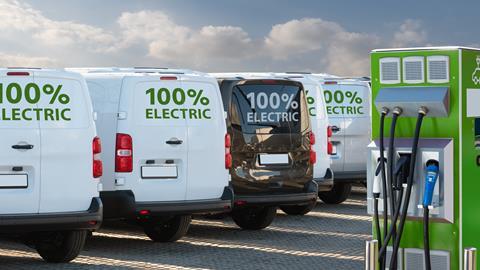Sales of battery electric vans fell by 16.8% last month compared to a year ago, prompting concerns over zero emission vehicle mandates (ZEVs).
SMMT figures showed just 1,476 BEV units were registered and in the year to date they now account for 4.7% of all new light van registrations, compared with 5.2% for the same period last year.
The SMMT said manufacturers were working hard to deliver growing numbers of zero emission models through new model launches and attractive offers, but all stakeholders had to play their part to deliver the market transition needed.
The National Franchised Dealers Association (NFDA) said retail and fleet van buyers were showing decreased interest in electric light commercial vehicles:
“This is a concern particularly with the ZEV mandate requiring at least 10% of registrations to be electric,” said Sue Robinson, NFDA chief executive.
“The new government needs to address the vast price difference for electric LCVs that makes them non-viable for businesses and create a better charging infrastructure to support the bigger vehicles dimensions.”
The SMMT figures also showed that the UK new light CV market fell by 4.5% to 33,066 units in June, ending a 17-month record-equalling growth run.
However, despite the fall, it said the market remained robust during Q1 and had increased by 4.5%, with 177,620 new vans, pickups and 4x4s registered in 2024 - the best performance since 2021.
The SMMT pointed out that the scale of June’s decline was in part artificially inflated compared with 2023, which saw the best June performance for four years as the industry met pent-up demand following Covid.
Mike Hawes, SMMT chief executive, said, “The best first half of a year since 2021 is great news for a market so intrinsic to economic growth, but this optimism will only continue if action is taken to re-energise zero emission van demand.
“A new government provides an opportunity to bolster the market with a strategy to grow the UK’s van-specific charging network at pace and maintain essential fiscal incentives to keep this vital market on track, without which our net zero ambitions will be at risk.”














